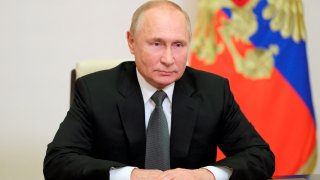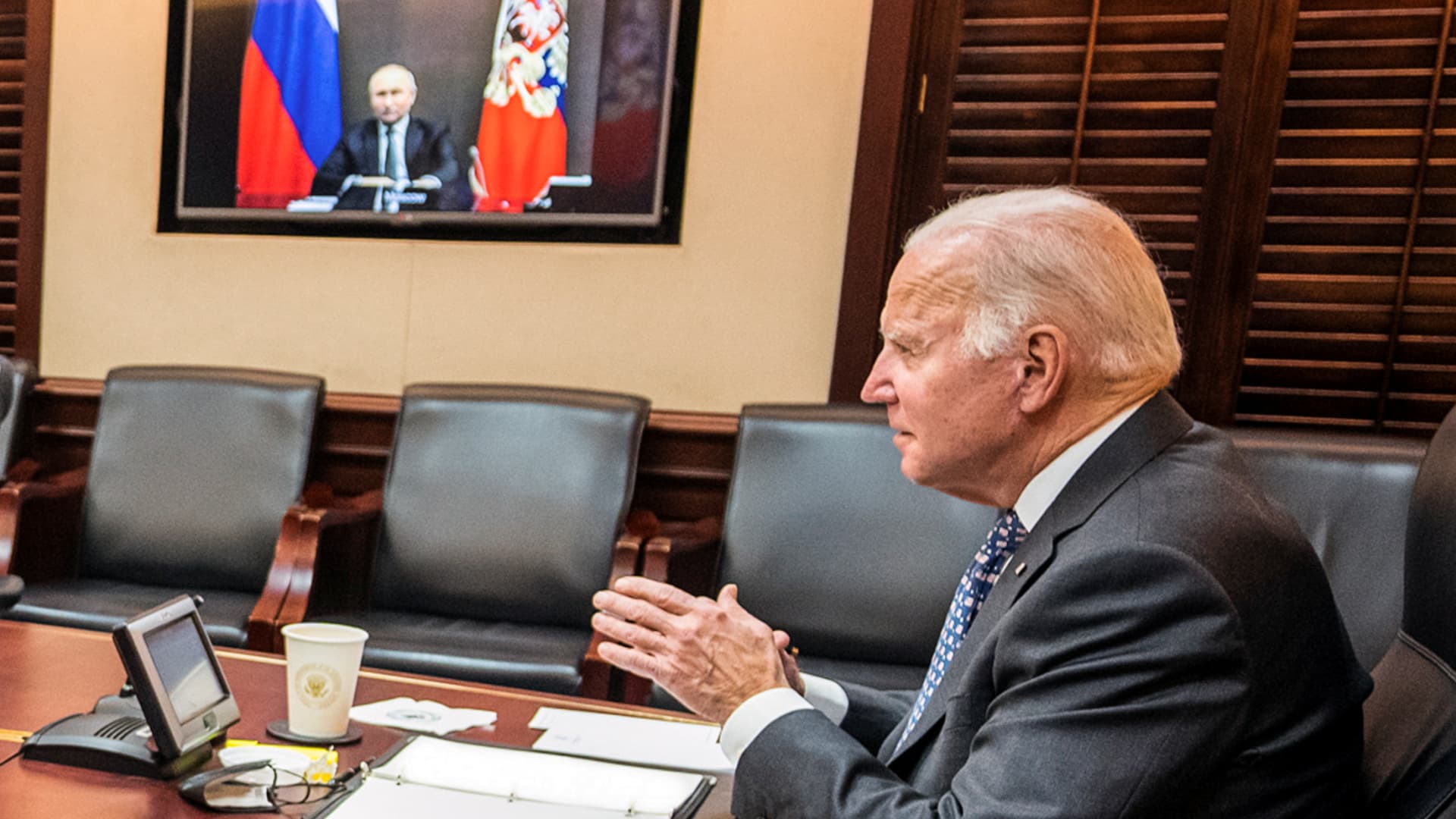
- The Biden administration said Saturday that "no firm commitment" will be made by the United States during diplomatic talks with Russia this coming week.
- The talks between Washington and Moscow come amid a stunning deployment of Russian troops on the Ukrainian border.
- "There will be no firm commitment made in these talks, which will be serious and concrete but exploratory in nature. Everything discussed will need to both come back to Washington for consideration and also to be taken up with partners and allies later in the week," a senior administration official told reporters.
WASHINGTON – The Biden administration reiterated Saturday that "no firm commitment" will be made by the United States during diplomatic talks with Russia this coming week.
The talks between Washington and Moscow come amid a stunning deployment of Russian troops on the Ukrainian border.
A senior administration official, who spoke on the condition of anonymity, warned Saturday of Russian disinformation ahead of the diplomatic talks which are slated to begin next week in Geneva.
Get top local stories in Connecticut delivered to you every morning. Sign up for NBC Connecticut's News Headlines newsletter.
"I can assure you in advance that there will be no firm commitment made in these talks, which will be serious and concrete but exploratory in nature. Everything discussed will need to both come back to Washington for consideration and also to be taken up with partners and allies later in the week," the senior administration official told reporters.
For months, Kyiv has warned the U.S. and European allies that tens of thousands of Russian troops were massing along its eastern border. The buildup has evoked shades of Russia's 2014 annexation of Crimea, a peninsula on the Black Sea, which sparked an international uproar and triggered a series of sanctions on Moscow.
"While we would much prefer to deescalate diplomatically if Russia does choose this other path, we are more than ready and totally in line with our partners and allies on the need to impose severe costs on Russia through financial sanctions, export controls that target key industries, enhancement of NATO force posture on allied territory and increased security assistance to Ukraine," a senior administration official told reporters.
Money Report
When asked, the official declined to further elaborate on the specific steps the Biden administration was prepared to take.
"We will know a lot more in a week or so which path we are on," the official said, adding that the U.S. will join the meetings with a "sense of realism, not a sense of optimism."
"We are willing to see whether or not Russia comes to these talks with a spirit of seriousness and willingness to discuss these issues in a concrete result-oriented way," the official added.

The Russian Embassy in Washington, D.C., did not immediately respond to CNBC's request for comment.
The latest revelation comes on the heels of a high-stakes call between President Joe Biden and Russian President Vladimir Putin amid a significant military buildup on the Ukrainian border.
The call on Dec. 30, the second known discussion between the two leaders this month, was scheduled at Putin's request.
Biden reiterated concerns and renewed threats that his administration would "respond decisively" alongside allies and partners if Russia further invades Ukraine.
The Russian president has previously insisted that despite the deployment of thousands of troops along Ukraine's border, Moscow is not preparing for an invasion of its ex-Soviet neighbor. Putin has also defended the right to deploy troops on Russia's borders and has accused NATO of escalating tensions by building up militaries in states adjacent to Russia.
Russia has described NATO's eastward expansion as a "red line" that poses security threats to Moscow.
Biden declined to accept Putin's "red lines" on Ukraine during their two-hour video call on Dec. 7.
Since 2002, Ukraine has sought entry into NATO, the world's most powerful military alliance, where the group's Article 5 clause states that an attack on one member country is considered an attack on all of them.
Next week, U.S. and Russian officials will hold security talks focusing on arms control agreements, NATO and Russian military activity and rising tensions over Ukraine. The Jan. 10 meeting will be held as part of the Strategic Security Dialogue that Biden and Putin announced during their June summit in Geneva.






